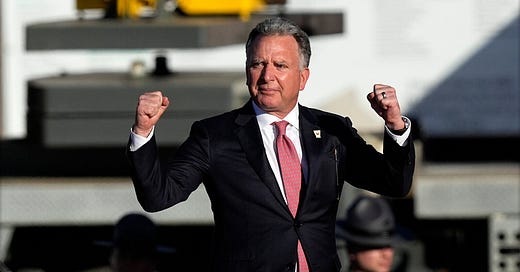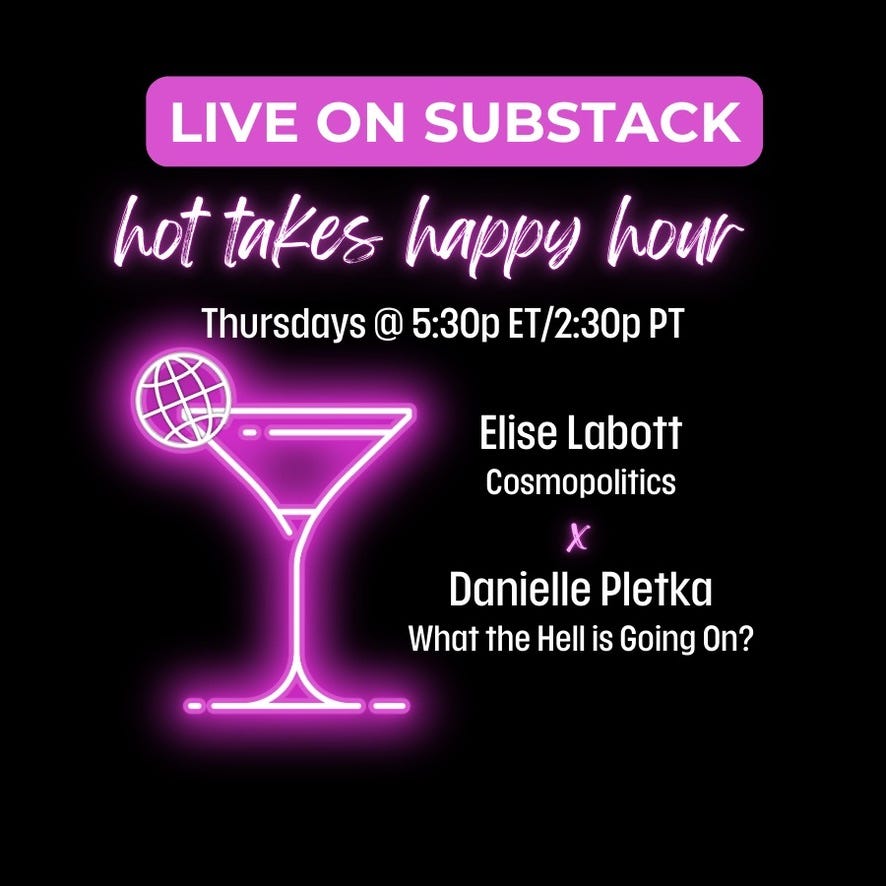In Donald Trump’s first term, he proved himself a scourge to the evil regime in Iran. Via the so-called maximum pressure campaign, Trump’s team wrought havoc on the Iranian economy, reduced Iran’s oil exports to below half a million barrels per day, and the President himself kept his promise to rip up the Joint Comprehensive Plan of Action (JCPOA), Barack Obama’s weak Iran nuclear deal. This term is shaping up differently, not simply because Trump’s shadow Secretary of State/Defense/National Security Adviser Steve Witkoff once appeared to wish to restore the Obama Iran policy, but because it is fast becoming clear that Trump’s main partners in the Middle East are, in fact, Iranian proxies.
Take Trump’s extremely cozy partnership with Qatar. The reality that several of Trump’s cabinet members and senior government officials were on the Qatari payroll is well documented. In no specific order, there’s FBI Director Kash Patel, EPA Director Lee Zeldin, Attorney General Pam Bondi, Ambassador to Israel Mike Huckabee, and I’m probably missing a few. Not to speak of the President’s own son, Eric Trump, who, along with Steve Witkoff’s son Zack, is building a golf resort in Qatar, which is being financed by a Saudi partner (Dar global) in partnership with Qatari firm Qatari Diar, which is… wait for it… owned by the Qatari government.
And then there’s this:
“Last week, a United Arab Emirates state-backed investment firm put $2 billion in one of Trump’s cryptocurrencies. The deal was announced onstage at a cryptocurrency convention in Dubai by Zach Witkoff, a co-founder of the Trump family crypto venture, World Liberty Financial, and son of the president’s envoy to the Middle East, Steve Witkoff. Also on stage at the time of that announcement: Eric Trump.”
For those who pay less attention to Qatar than yours truly, the tiny emirate is home to Hamas, the Taliban (when not in Afghanistan), and is the owner of Al Jazeera, the rabidly anti-Israel network once accused of working with al Qaeda to harm U.S. troops. The same Qatar that is home to al Udeid, the largest U.S. military installation in the Middle East. And yes, Doha foots a lot of the bill for the base. The same Qatar that has been an interlocutor in the 19-month-long Israeli hostage negotiations. The same Qatar now embroiled in a bribery scandal in Israel.
Give the Qataris this: They are equal opportunity players, doing business with America, the terrorists, the Jews, the Iranians, the Sunni, the Shia… and everyone else. When Joe Biden was on the cusp of coughing up billions for Iran, the Arab partner that hung on to the cash was Qatar. When antisemitic, pro-terror protests swept the world in 2023/4/5, we didn’t need to look far to see Qatari funding at U.S. universities — to the tune of billions. Tucker Carlson? They’re there too. And when Hunter Biden cooked his sleazy deal with Ukrainian energy firm Burisma, guess where he was?
Trump administration officials insist that the Qataris are misread, that they are loyal friends, and that they are instrumental in negotiations with Israel, Hamas, Iran, Afghanistan, and more. Indeed, they are instrumental… but they are far from honest brokers. Before we jump to evidence of the profound shift Doha has effected in Washington, let’s talk quickly about another critical partnership, with Oman.
Sandwiched into the Gulf between Yemen, Saudi, and the UAE, the Omanis are far poorer than their neighbors. But they too have glommed rather cleverly onto the Qatari modus operandi. Where are talks between the United States and Iran taking place? Muscat. Where are discussions about the Houthis’ war on shipping and on Israel taking place? Same. Where are the Houthis based when they’re not trying to kill US troops and Israelis? Oman. How do I know? Because, in addition to copious reporting, together with some colleagues, the Omanis were gracious enough to host me a few years back, and we met with the Houthis there. (I walked out of the meeting after some “death to the Jews” stuff.) And oh yeah, more of Iran’s money is helpfully sitting in Omani banks waiting for the high sign to be paid out.
Oman’s friends in Washington insist that Muscat is more of a “facilitator” and less of a partisan than Qatar, that it offers “neutral ground.” Not really. Oman has been a key player for Iran’s dealings with the Houthis, reportedly allowing arms transfers and financing the flow to the Tehran proxies in Yemen. But hey, players gonna play, apparently.
Now to the Tehran agenda. Remember, Trump is the guy who gave the order for Qassem Soleimani, the critically important Quds Force, IRGC general, to be killed. Trump is the guy who ripped up the JCPOA. Trump is the guy who has continued upping sanctions on Iran, even in his first term. And Trump is the guy who told Meet the Press that Iran needed to totally dismantle its nuclear program.
That seems pretty clear. But mere days later, VP JD Vance gave a speech in which he said Iran could have a civil nuclear program (the same program that has been a front for its weapons programs). And then there are Witkoff’s many, many, many different positions on Iran. And Marco Rubio has said Iran must “walk away” from enrichment, whatever that means. Rubio is also apparently touting the idea of a nuclear cooperation agreement between the US and Iran… Because… um… OK, I get that he believes it will give the US control over Iran’s nuclear activities. Except it won’t, any more than the Nuclear Non-Proliferation Treaty and the IAEA have managed Iran’s weapons work.
We now have confirmation that all this confusion stems from the fact that the Administration entered into negotiations with Iran without deciding what it wanted to achieve. When asked yesterday if he was prepared to enter an Obama-like agreement permitting Iran to continue enriching uranium, Trump conceded, “We haven’t made that decision yet.”
On top of all this, there’s the question of the recent agreement with the Houthis. Apparently, the Trump administration signed on to a Muscat-brokered deal for a Houthi ceasefire in the Red Sea, and pledged to end the weeks-long military campaign against the Houthis. Except… the agreement doesn’t mention Houthi attacks on Israel, including two recent attacks on Israeli airports. Or Houthi attacks on America’s Gulf allies like Saudi or the UAE. Again, how did this happen? Who suggested allowing the Houthis free rein against our allies is a good idea? At least one report suggests that the shape of the deal (US-Houthi, no Israel) was conceived by Oman and the Islamic Republic of Iran.
At the end of the day, the question of who is influencing what passes for thinking on Iran and the Gulf in the Trump administration is critical. Is it Witkoff? Trump’s kids? The Qataris and the cash? The Omanis and their schemes? Or all of the above?
And don’t forget to subscribe to watch my Hot Takes Happy Hour with the brilliant
today at 530 ET!





Maybe Trump's big announcement will clear all this up.